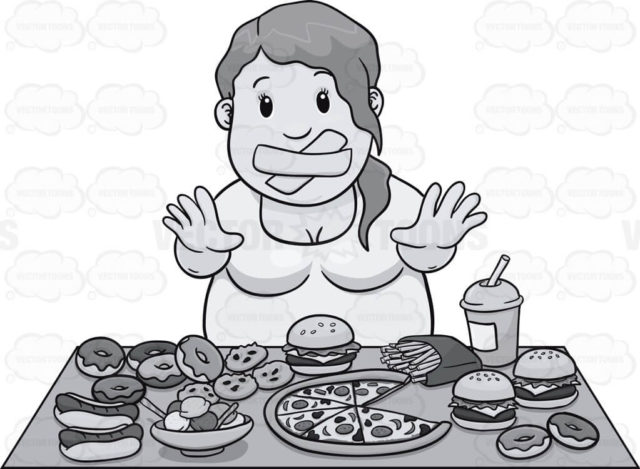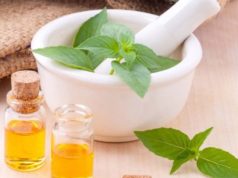Fat! Don’t be scared of it… You require it in your diet. Fat doesn’t precisely make you “fat” – glut calories make you look “fat.” It’s about getting the correct balance.
Fat has had the bad name, to the extent that some foods are devised and marketed as ‘fat-free.’ But it’s not always all bad. In fact, getting some amount of fat from our diet is a necessity.
What fats are, why we need them, what they do for us, are common questions of a lay man, let’s take a look at it.
Why do we need fat?
All-natural foods have some fat. It is in foods as plants and animals both use fats as the most economical way to store energy. It is required for their growth, development, and function when there is a shortage of food supply like a shortage of sunlight in the case of plants.
Certain explicit dietary fats have other fundamental functions. We are similar to other animals, so we also need some fat from our diet to survive. As with maximum things, too much fat is harmful, as it leads to obesity, but some amount is required for good health, as anything in excess is not good.
What is fat used for?
A source of energy – Our body utilizes the fat we eat, and fats we make from another nutrient in our bodies, to provide the energy for most of our life-functions
Energy store – The extra calories that we consume, but do not need to use instantly, are stored for future use in fat cells.
Essential fatty acids – Dietary fats that are essential for growth development and cell functions, but cannot be made by our body’s processes.
A Proper operative of nerves and brain– fats are part of myelin- a fatty material which mantels around our nerve cells to make it possible for them to send electrical messages. Our brains have a large hunk of essential fats.
Preserving healthy skin and other tissues- All our body cells need to contain some fats as significant parts of cell membranes, controlling what goes in and out of our cells.
Carrying fat-soluble vitamins A, D, E and K through the bloodstream to where they are needed.
Forming steroid hormones needed to regulate many bodily processes.
First things first: Not all carbs are created equal.We need carbohydrates for our bodies even to function.
Healthy, complex carbs are found in many foods than one thinks. And one should be eating them every day.
Good Carbs:
Vegetables: All of them. It is best to eat a variety of vegetables every day.
Whole fruits: apples, bananas, strawberries, etc.
Legumes: lentils, kidney beans, peas, etc.
Nuts: almonds, walnuts, hazelnuts, peanuts, etc.
Seeds: chia seeds, pumpkin seeds.
Whole grains: Select grains that are truly whole, as in pure oats, quinoa, brown rice, etc.
Roots: potatoes, sweet potatoes, etc.
People who want to avoid carbohydrates need to be careful with the whole grains, legumes, tubers and high-sugar fruit.
Bad Carbs:
Sugary Refreshments: Pepsi, Coca cola, etc. Sugary drinks are one of the unhealthiest things you can put into your body.
Fruit juices: unfortunately, fruit juices may have similar metabolic effects as sugary drinks.
White bread: These are little carbohydrates that are low in necessary supplements and bad for metabolic health. This applies to most commercially available bread.
Cakes: These turn to be very high in sugar and refined wheat.
Ice creams: Ice cream is very high in sugar, although there are exceptions.
Chocolates: If one cannot resist chocolates, choose quality dark chocolate.
French fries, potato chips: As whole potatoes are healthy, but french fries and potato chips are not.
These foods may work in moderation for some people, but many will do best by avoiding them as much as possible.
Below are three charts showing the level of carbs, fat, and calorie contents:
|
Vegetables (1/2 cup) |
Calories |
Fat (g) |
Carbs (g) |
Protein (g) |
|
Cucumber |
6.8 |
0.1 |
1.4 |
0.4 |
|
Lettuce (1 cup) |
7.8 |
0.2 |
1.4 |
1 |
|
Cabbage |
11.1 |
0.1 |
2.4 |
0.6 |
|
Radish |
11.6 |
0.3 |
2.1 |
0.3 |
|
Celery Cooked |
13.5 |
0.1 |
3 |
0.6 |
|
Eggplant Cooked |
13.9 |
0.1 |
3.3 |
0.4 |
|
Cauliflower Cooked |
14.3 |
0.3 |
2.5 |
1.1 |
|
Zucchini Cooked |
14.4 |
0 |
3.5 |
0.6 |
|
Banana Peppers |
17 |
0.3 |
3.3 |
0.9 |
|
Green Beans |
17.1 |
0.1 |
3.9 |
1 |
|
Tomotoes |
18.9 |
0.3 |
4.2 |
0.8 |
|
Green & Red peppers |
19 |
0.1 |
4.6 |
0.6 |
|
Potatoes |
57 |
0 |
13 |
1 |
|
Mushrooms Cooked |
21.1 |
0.4 |
4 |
1.7 |
|
Broccoli Cooked |
21.8 |
0.3 |
3.9 |
2.3 |
|
Pumpkin Cooked |
24.5 |
0.1 |
6 |
0.9 |
|
Spinach Cooked |
20.7 |
0.2 |
3.4 |
2.7 |
|
Asparagus Cooked |
22 |
0.3 |
3.8 |
2.3 |
|
Leek |
27.1 |
0.1 |
6.3 |
0.7 |
|
Onion |
30.4 |
0.1 |
6.9 |
0.9 |
|
Carrots |
35.1 |
0.1 |
8.2 |
0.9 |
|
Peas |
58.7 |
0.3 |
10.5 |
3.9 |
|
Sweet Corn |
66.2 |
0.9 |
14.6 |
2.5 |
|
Sweet Potato Cooked |
103 |
0.1 |
24.3 |
1.7 |
|
Sprouts |
30.4 |
0.4 |
6.8 |
2 |
|
Fresh Fruit (1/2 cup) |
Calories |
Fat (g) |
Carb (g) |
Protein (g) |
|
Watermelon |
24.3 |
0.3 |
5.5 |
0.5 |
|
Strawberry |
24.9 |
0.3 |
5.8 |
0.5 |
|
Raspberries |
30.1 |
0.3 |
7.1 |
0.6 |
|
Grapefruit |
34.5 |
0.1 |
8.6 |
0.6 |
|
Peach |
36.6 |
0.1 |
9.4 |
0.6 |
|
Apple |
36.9 |
0.2 |
9.5 |
0.1 |
|
Pineapple |
38 |
0.3 |
9.6 |
0.3 |
|
Blackberries |
37.4 |
0.3 |
9.2 |
0.5 |
|
Melon |
29.8 |
0.1 |
7.8 |
0.4 |
|
Apricot |
39.6 |
0.3 |
9.2 |
1.2 |
|
Cherry |
42.1 |
0.6 |
9.7 |
0.7 |
|
Orange |
42.3 |
0.1 |
10.6 |
0.8 |
|
Plum |
45.4 |
0.5 |
10.7 |
0.7 |
|
Pear |
48.7 |
0.3 |
12.5 |
0.3 |
|
Mango |
53.6 |
0.2 |
14 |
0.4 |
|
Kiwi |
54 |
0.4 |
13.2 |
0.9 |
|
Banana |
69 |
0.4 |
17.6 |
0.8 |
|
Grapes |
56.8 |
0.5 |
14.2 |
0.5 |
|
Dates (1/4 cup) |
122.4 |
0.2 |
33 |
0.4 |
|
Raisins (1/4 cup) |
109 |
0.2 |
33 |
0.4 |
|
Nuts (1/3 cup) |
Calories |
Fat (g) |
Carbs (g) |
Protein (g) |
|
Coconut |
94.3 |
8.9 |
4.1 |
0.9 |
|
Chestnut |
98.9 |
1 |
21 |
1.5 |
|
Almond |
182.9 |
16 |
6.2 |
6.7 |
|
Pistachio |
237.4 |
18.9 |
11.9 |
8.8 |
|
Hazlenut |
240.5 |
23.3 |
6.4 |
5.7 |
|
Pine Nut |
256.3 |
23 |
6.4 |
10.9 |
|
Walnut |
261.3 |
26.1 |
5.5 |
6.1 |
|
Cashew, dry roasted |
261.9 |
21.1 |
14.9 |
7 |
|
Peanut, dry roasted |
284.4 |
24.1 |
10.5 |
11.5 |
Intake and burning of calories is an important concept for how to lose weight and also on maintaining weight.








